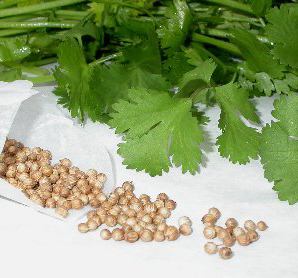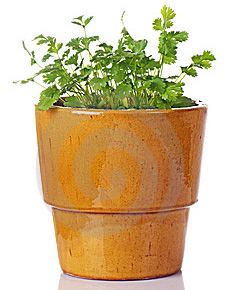In today’s article, I want to talk about how beneficial coriander is in medicine. Traditional treatment with coriander has developed in Indian Vedic medicine, Ayurveda, which is rightly considered an authoritative source of many medical knowledge.
Everyone knows coriander—its seeds are sprinkled on Borodinsky bread, and the spicy herb cilantro grows in every gardener’s garden who loves salad greens.
I find the treatment experience with coriander in Ayurveda particularly interesting: coriander is beneficial for people with a Pitta constitution (who tend to be overweight, suffer from constipation, and have restless sleep). For this constitution, most appetite-increasing spices are not recommended, while coriander positively affects digestion and the urinary system. It is especially effective when combined with fennel, turmeric, and pomegranate peels.
Coriander does not increase appetite and has carminative and mild diuretic effects. It helps digest dairy products and fruits. It has a cleansing effect, can stop diarrhea, and improves intestinal absorption.
Coriander will eliminate heartburn, burning in the stomach, and belching. In cases of stomach ulcers, it has a wound-healing and bactericidal effect on the mucosa.
Lethargy of the liver and biliary stasis are also treated with coriander. Turmeric and coriander restore the liver after hepatitis. In cases of obesity, coriander is included in herbal mixtures to regulate appetite and the proper distribution of fat and energy in the body.
It helps combat urinary tract infections, kidney stones, and sand, and treats cystitis and pyelonephritis. The composition of coriander contains plant antibiotics and anti-inflammatory substances, which give it antiviral and antibacterial properties.
Coriander is even recommended for endometriosis and menstrual delays; its greens, cilantro, are rich in phytoestrogens.
Externally, cilantro juice is used as an anti-allergen for insect bites and various eczema and rashes. This juice, diluted with water (1 tbsp per glass of water), is used to wash the eyes in cases of conjunctivitis.
Essential oil of coriander reduces body temperature and induces sweating, purifying the blood from infection.
If you are contraindicated from eating spicy foods, coriander can replace pepper, enriching your food with flavor and making it harmonious.
Recipes with coriander:
Coriander for heartburn - 2 tsp of seeds in a glass of boiling water. Helps with heartburn, burning, ulcers, high acidity, bloating, pain, colic, diarrhea.
Coriander for flu and colds - soak 2 tbsp of coriander seeds in warm water overnight, drink the infusion in the morning on an empty stomach. Throughout the day, drink coriander tea with lemon.




